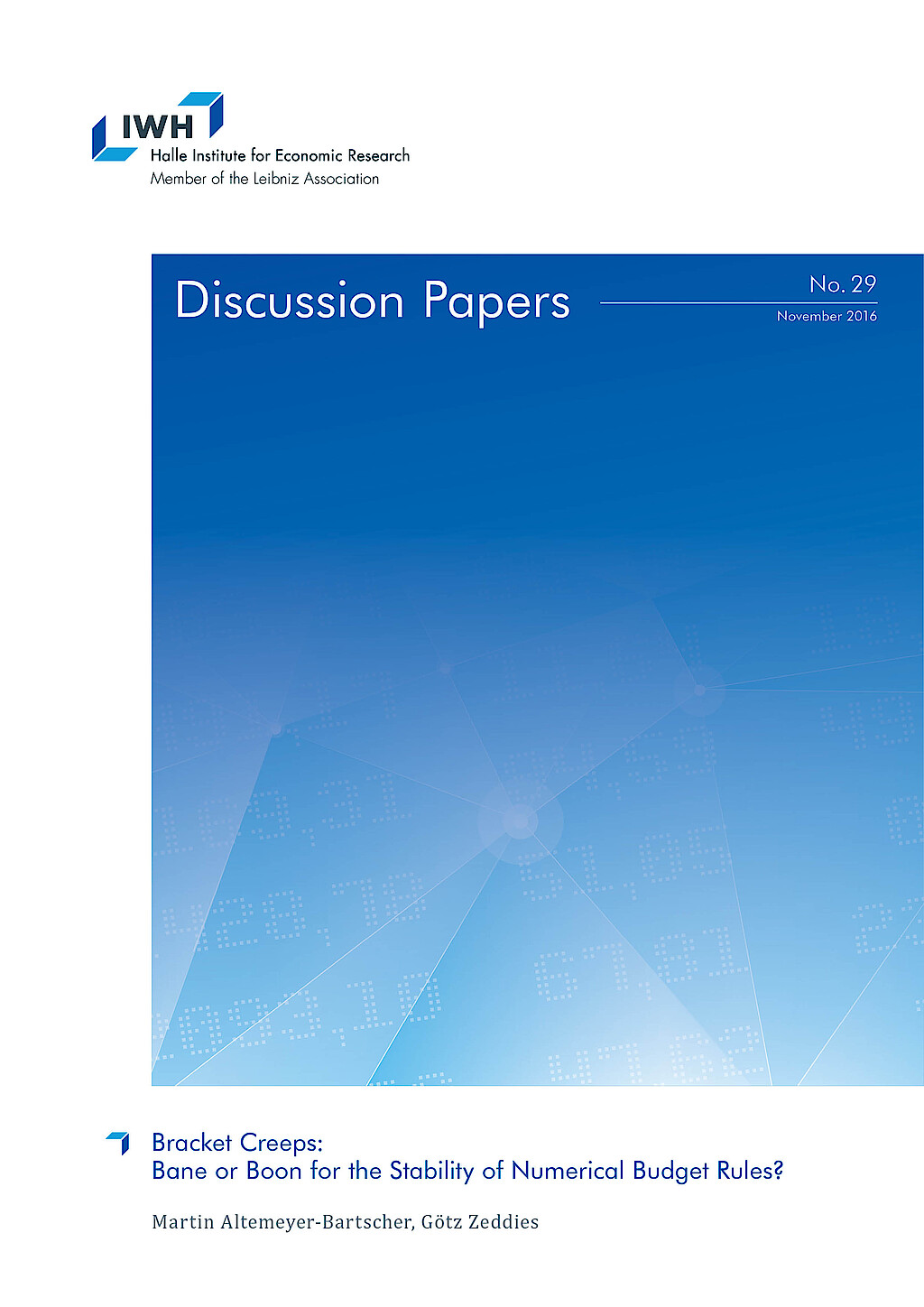
Bracket Creeps: Bane or Boon for the Stability of Numerical Budget Rules?
in: IWH Discussion Papers, No. 29, 2016
Abstract
As taxpayers typically pay low attention to a small inflation-induced bracket creep of the income tax, policy-makers tend to postpone its correction into the future. However, the fiscal illusion fades away and political pressure for a tax relief arises since after some years the cumulative increase of the average tax rate exceeds a critical threshold. Using Germany as an example, this paper shows that bracket creeps can provoke revenue cycles in public budgets hindering governments’ compliance with the numerical budget rules. An indexation of the tax tariff could prevent such fluctuations and thus provides a favourable framework for the debt rule.

Corporate Taxation and Firm Location in Germany
in: IWH Discussion Papers, No. 2, 2015
Abstract
German Fiscal Federalism is characterized by a high degree of fiscal equalization which lowers the efficiency of local tax administration. Currently, a reform of the fiscal equalization scheme is on the political agenda. One option is to grant federal states the right to raise surtaxes on statutory tax rates set by the central government in order to reduce the equalization rate. In such an environment, especially those federal states with lower economic performance would have to raise comparatively high surtaxes. With capital mobility, this could further lower economic performance and thus tax revenues. Although statutory tax rates are so far identical across German federal states, corporate tax burden differs for several reasons. This paper tries to identify the impact of such differences on firm location. As can be shown, effective corporate taxation did seemingly not have a significant impact on firm location across German federal states.

Determinants of International Fragmentation of Production in the European Union
in: IWH Discussion Papers, No. 15, 2007
Abstract
The last decades were characterized by large increases in world trade, not only in absolute terms, but also in relation to world GDP. This was in large parts caused by increasing exchanges of parts and components between countries as a consequence of international fragmentation of production. Apparently, greater competition especially from the Newly Industrializing and Post-Communist Economies prompted firms in ‘high-wage’ countries to exploit international factor price differences in order to increase their international competitiveness. However, theory predicts that, beside factor price differences, vertical disintegration of production should be driven by a multitude of additional factors. Against this background, the present paper reveals empirical evidence on parts and components trade as an indicator for international fragmentation of production in the European Union. On the basis of a panel data approach, the main explanatory factors for international fragmentation of production are determined. The results show that, although their influence can not be neglected, factor price differences are only one out of many causes for shifting production to or sourcing components from foreign countries.



